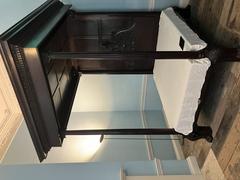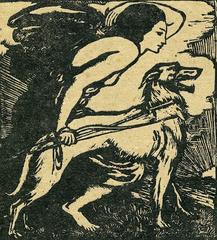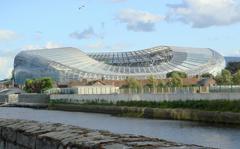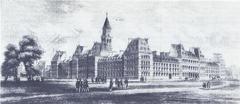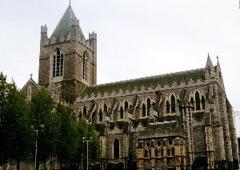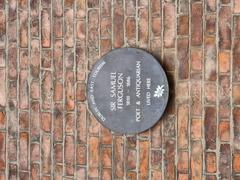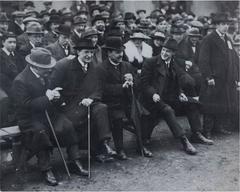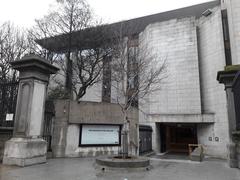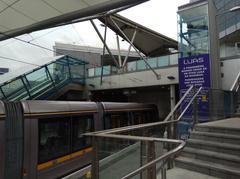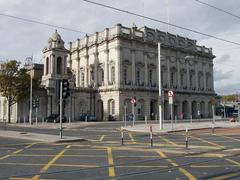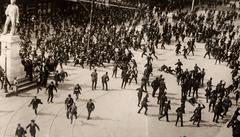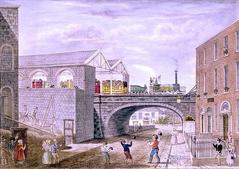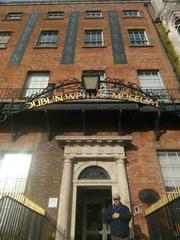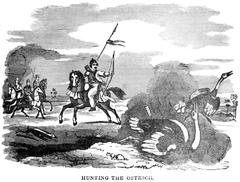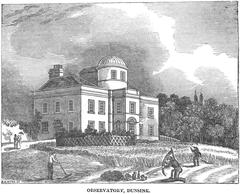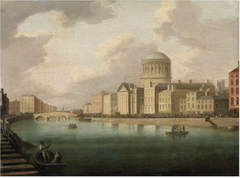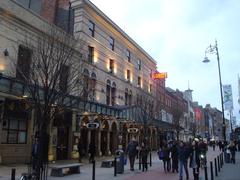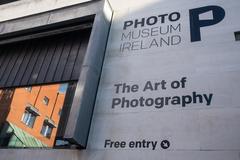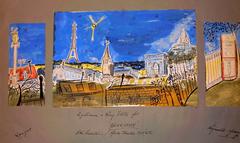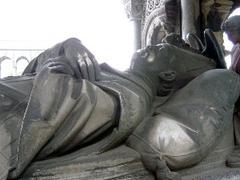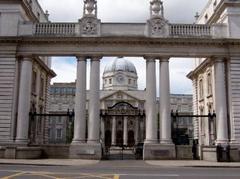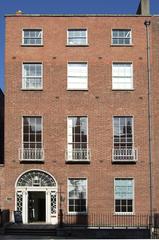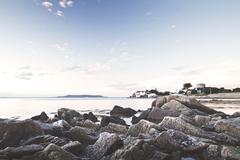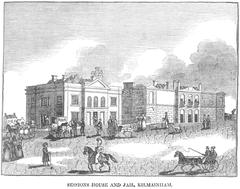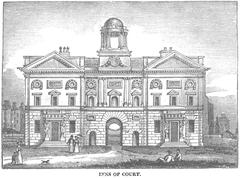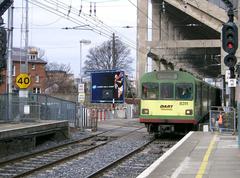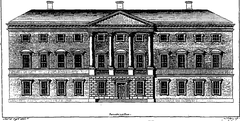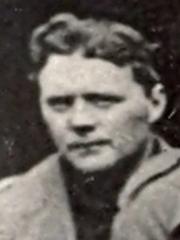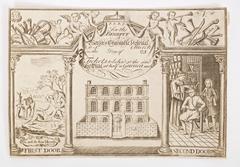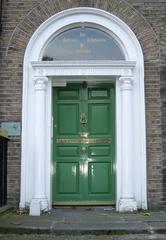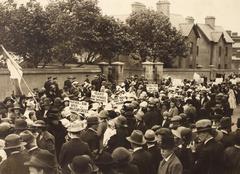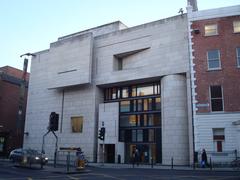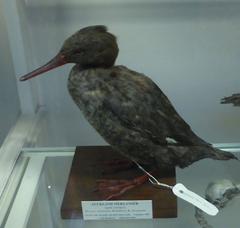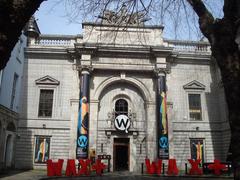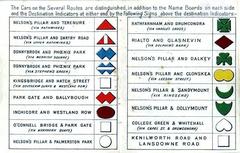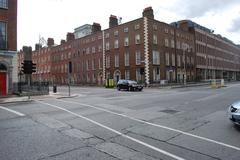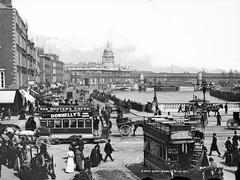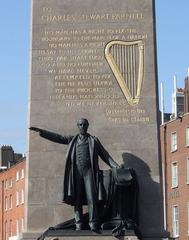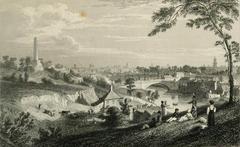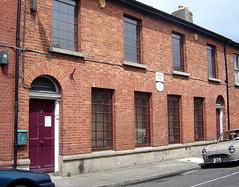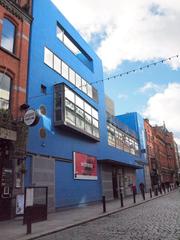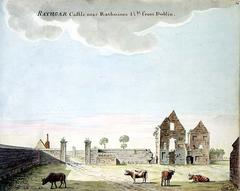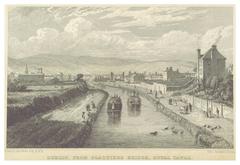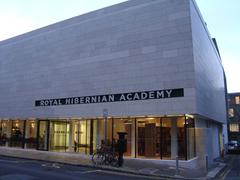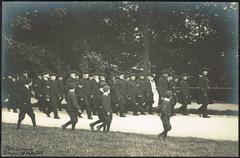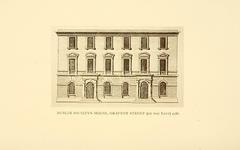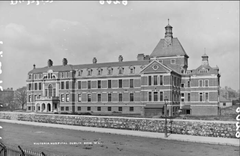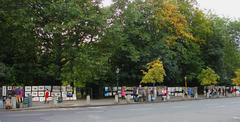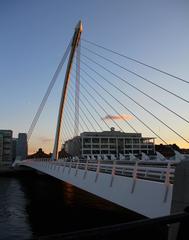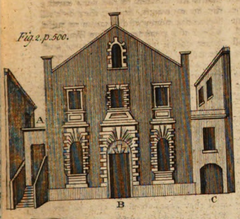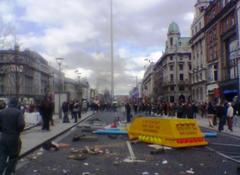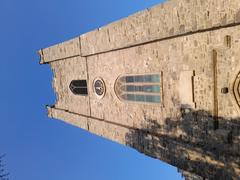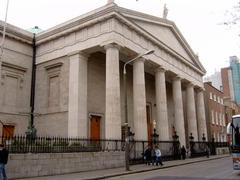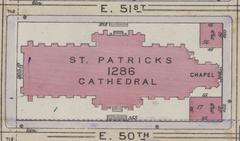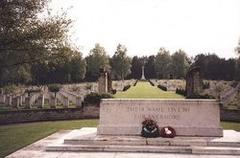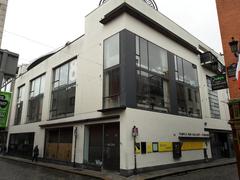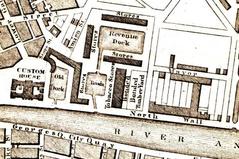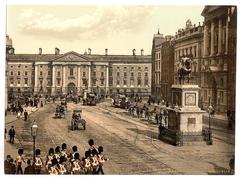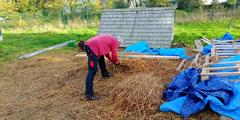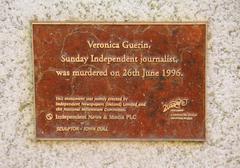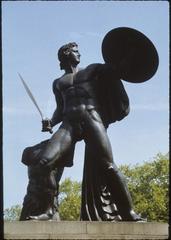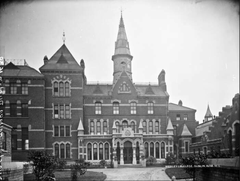Dublin North West Visiting Guide: Opening Hours, Tickets, and Attractions
Date: 03/07/2025
Introduction
Dublin North–West is a dynamic and historically rich region that offers visitors a blend of storied heritage, cultural vibrancy, and breathtaking green spaces. From ancient settlements and the medieval Pale to Georgian grandeur and modern rejuvenation, this part of Dublin presents a compelling journey through time, punctuated by iconic sites such as Phoenix Park, Glasnevin Cemetery, and Croke Park. Whether you are a history buff, nature lover, sports enthusiast, or curious traveler, Dublin North–West provides an authentic Irish experience shaped by its diverse neighborhoods and welcoming communities (dublin.ie; britannica.com).
This guide delivers essential information on top attractions, visitor hours, ticketing, accessibility, transport, and insider tips to help you make the most of your Dublin North–West adventure. For real-time updates and guided tours, consider downloading the Audiala app.
Table of Contents
- Introduction
- Historical Overview
- Top Attractions: Visiting Hours & Ticket Info
- Food, Drink & Nightlife
- Markets & Community Events
- Getting Around: Public Transport and Accessibility
- Safety and Local Etiquette
- Money-Saving Tips
- Accommodation and Practicalities
- FAQs
- Notable Day Trips
- Conclusion
- Sources and Further Reading
Historical Overview
Early Origins and Settlement
Dublin North–West is rooted in the ancient history of Dublin itself. The earliest settlement, Áth Cliath (“Hurdled Ford”), was established by the fourth century, and by the sixth century, the monastic site Duiblinn (the “black pool”) was founded, giving the city its English name. Viking occupation in 841 CE led to the development of fortified settlements, laying the foundation for Dublin’s urban landscape (dublin.ie; dublin.info).
Medieval Expansion and The Pale
Following the Anglo-Norman invasion in 1170, Dublin became the capital of the English Lordship of Ireland. The north side, including present-day Dublin North–West, became part of “The Pale”—a fortified region under English rule, distinguished by defensive boundaries and annual commemorations (wikipedia). The area developed significant religious and civic buildings during this period.
Georgian and Victorian Eras
The 18th century brought rapid urban expansion and Georgian architectural splendor, particularly on the north side. This era saw the creation of grand squares, improved infrastructure, and the construction of the Grand Canal. However, the 19th century brought both modernization and hardship, with economic decline and severe poverty following the Act of Union (britannica.com; dublin.info).
Industrialization and Social Change
Industrial growth and improved transport links, such as railways and trams, marked the late 19th and early 20th centuries. Landmarks like the Guinness Brewery became symbols of Dublin’s industrial rise, while the area also played a significant role in labor movements and the struggle for independence (dublin.info).
Revolutionary Period and Independence
Dublin North–West was deeply affected by pivotal events such as the 1916 Easter Rising and the subsequent War of Independence. Many buildings in the area still bear scars from these conflicts (irishtimes.com).
Urban Growth and Demographic Shifts
The 20th century saw massive population growth and the arrival of new communities, especially during the “Celtic Tiger” economic boom. Modern housing, schools, and community facilities transformed the region’s social fabric (wikipedia).
Modernization and Cultural Significance
Today, Dublin North–West is a vibrant blend of historic neighborhoods, modern amenities, and diverse communities. Landmarks like Phoenix Park and Glasnevin Cemetery highlight its historical and cultural importance, while venues such as the Abbey Theatre and Axis Arts Centre showcase its creative energy (wanderlog.com; britannica.com).
Top Attractions: Visiting Hours & Ticket Info
Phoenix Park
- Hours: Open daily, 7:00 AM to 9:00 PM (seasonal variations)
- Tickets: Free entry; Dublin Zoo and special events ticketed separately
- Accessibility: Wheelchair accessible; bike rentals available
- Highlights: Áras an Uachtaráin (presidential residence), Dublin Zoo
- Website: phoenixpark.ie
Glasnevin Cemetery
- Hours: 9:00 AM – 5:00 PM daily
- Tickets: Guided tours ~€10/adult; museum & tower access €12 (combo)
- Accessibility: Wheelchair accessible; audio tours available
- Website: glasnevintrust.ie
The Spire of Dublin
- Hours: Public space, accessible 24/7
- Tickets: Free
- Accessibility: Fully accessible
- Website: visitdublin.com
General Post Office (GPO)
- Hours: 9:00 AM – 5:00 PM, Mon–Sat
- Tickets: Free entry; GPO Witness History Visitor Centre ~€8
- Accessibility: Wheelchair accessible
- Website: gpomuseum.ie
Abbey Theatre
- Box Office Hours: 10:00 AM – 6:00 PM
- Tickets: Vary by show; advance booking recommended
- Accessibility: Fully accessible; assistive listening devices available
- Website: abbeytheatre.ie
Croke Park
- Hours: Stadium Tour & GAA Museum, 9:30 AM–5:30 PM daily (last admission 4:30 PM)
- Tickets: €14/adult; family and concession passes available
- Highlights: All-Ireland Finals, Skyline Tour (panoramic city views)
- Accessibility: Fully wheelchair accessible
- Website: crokepark.ie
National Botanic Gardens
- Hours: Gardens, 9:00 AM–5:00 PM; glasshouses, 10:00 AM–4:30 PM
- Admission: Free
- Accessibility: Paths and facilities accessible
- Website: visitdublin.com
Dublin City University (DCU) & Ballymun Regeneration
- Highlights: Helix Theatre (tickets vary by event), Rediscovery Centre (10:00 AM–5:00 PM; fees for workshops)
- Websites: dcu.ie, rediscoverycentre.ie
Tolka Park
- Home of: Shelbourne FC
- Tickets: €10–€15; check match schedules
- Website: shelbournefc.ie
Axis Arts Centre
- Hours: Tues–Sun, 10:00 AM–6:00 PM (check for event hours)
- Tickets: Free for gallery/events; special performances €10–€25
- Accessibility: Fully accessible
- Website: axisballymun.ie
Bull Island
- Hours: Open year-round
- Admission: Free
- Highlights: Beaches, walking trails, birdwatching
- Website: visitdublin.com
Food, Drink & Nightlife
Experience Dublin’s legendary pub culture at The Gravediggers near Glasnevin Cemetery or in Phibsborough, Drumcondra, and Smithfield for a lively mix of traditional music and local flavors (heydublin.ie). Enjoy a diverse range of cafés, bakeries, and restaurants, from classic Irish breakfasts to international cuisine.
Markets & Community Events
Regular farmers’ markets and craft fairs are held at venues like Bernard Shaw and along Royal Canal Bank, featuring local produce, crafts, and live music (visitdublin.com).
Getting Around: Public Transport and Accessibility
- Dublin Bus: Extensive routes, roughly 5:30 AM to midnight; fares €1.50–€3.10 (nomadicmatt.com)
- Luas Tram: Red & Green Lines serve North–West; tickets €2–€2.60
- DART Rail: Connects to greater Dublin area
- Leap Card: Best value for unlimited journeys on buses, trams, and trains (theirishroadtrip.com)
- Walking/Biking: Many attractions are walkable; DublinBikes rental stations widely available
- Accessibility: Most attractions and transport options are wheelchair friendly
Safety and Local Etiquette
Dublin is generally safe, even for solo travelers. Exercise standard caution: avoid poorly lit areas at night, secure valuables, and never leave drinks unattended. Ballymun and Finglas have higher petty crime rates—stay alert and avoid deserted areas after dark (nomadicmatt.com). In emergencies, dial 112 or 999.
Tipping 10% in restaurants is appreciated but not mandatory. Buying a “round” in pubs is customary. Dubliners are friendly—greetings and casual small talk are welcome (roadsanddestinations.com).
Money-Saving Tips
- Leap Card: Reduces transport costs (irelandbeforeyoudie.com)
- Free Attractions: Phoenix Park, National Botanic Gardens, Glasnevin Cemetery grounds
- Dining: Eat in Phibsborough, Drumcondra, and other local neighborhoods for better value; look for lunch specials and early-bird menus
- Accommodation: Book early for best rates, especially during festivals
Accommodation and Practicalities
Choose from hotels, guesthouses, or hostels in north-west districts for a quieter stay with easy access to public transport. Free Wi-Fi is widely available, and tap water is safe to drink. Card payments are common, but carry some cash for small purchases.
Frequently Asked Questions (FAQ)
Q: Are tickets required for Phoenix Park?
A: No, entry is free. Dublin Zoo and special events are ticketed.
Q: How do I book guided tours at Glasnevin Cemetery?
A: Book online or at the museum entrance for best availability.
Q: Is the National Botanic Gardens free to enter?
A: Yes, both gardens and glasshouses are free.
Q: Are attractions wheelchair accessible?
A: Most major sites and public transport are accessible.
Q: What public transport serves Dublin North–West?
A: Dublin Bus, Luas, and DART. Use a Leap Card for convenience.
Notable Day Trips and Nearby Attractions
Dublin North–West makes an excellent base for exploring the Dublin Mountains, Howth, and the Boyne Valley—each easily accessible by public transport for hiking, coastal walks, and ancient sites (celticwanderlust.com).
Conclusion
Dublin North–West combines centuries of history, vibrant culture, and green urban spaces in a way that few other districts can. Whether you’re walking among the legends at Glasnevin Cemetery, marveling at the expanse of Phoenix Park, cheering at Croke Park, or exploring the arts at the Axis Centre, this area promises diversity and authenticity. Use this guide to plan your visit, take advantage of practical tips, and immerse yourself in the real Dublin. For real-time updates and self-guided tours, download the Audiala app, and follow local social channels for the latest events and visitor insights.
Sources and Further Reading
- Exploring Dublin North-West: Visiting Hours, Tickets, and Historical Sites (dublin.ie)
- History of Dublin, Wikipedia
- Dublin Britannica
- Dublin Info History
- Ten Key Irish Events of the Last 100 Years, Irish Times
- Most Historic Buildings and Sites in Dublin, Wanderlog
- Croke Park Official
- HeyDublin.ie Best Historic Sites Dublin
- Visit Dublin Guide
- Rediscovery Centre
- Shelbourne FC
- Nomadic Matt Dublin Travel Guide
- Travel Around Ireland
- Ireland Before You Die
- The Irish Road Trip
- Dublin Public Transport
- The Geographical Cure Things to Do in North Dublin
- Jameson Distillery Official
- GPO Museum
- Dublin Tourism Official Site
- Axis Arts Centre Ballymun Official
